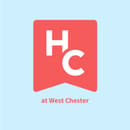Let’s start with a basic definition. Period poverty is the lack of access to sanitary products, menstrual hygiene education, toilets, hand-washing facilities, and, or, waste management, according to Global Citizen. Menstruation is a term bounded down by cultural shame and stigma for centuries, even though more than 800 million people menstruate daily. The tangled issues of cultural shame and lack of access to sanitary products prevent women and young girls from going to school and working every day. 1 in 5 girls miss school due to a lack of menstrual products. Many people are forced to use rags, paper towels, toilet paper, or cardboard, yet this issue continues to be an ignored public health crisis. This crisis also includes access to toilets, hand washing receptacles, and hygienic waste management.
You might be under the misconception that period poverty does not impact the lives of American women and young girls. Here in the United States, two major groups that face period poverty are students and homeless women and girls. The “Pink Tax”, or “Tampon Tax”, serves as a contributing factor in period poverty. 35 states tax period products as non-essential items, even though men’s grooming products and erectile dysfunction medications do not get taxed. Menstruation, a biological process, gets treated by legislators as a choice.
Women are 38% more likely to live in poverty than men. People living paycheck to paycheck have to choose between feeding their children or buying menstrual supplies. The average woman spends 2,535 days of her life menstruating. This is not a choice, it is a natural biologic process. Regardless of her social or financial situation, she must find a way to access these resources for nearly seven years of her life. Feminine hygiene products are ineligible to be purchased through food stamps, healthcare, or Medicaid, further limiting the access to resources of those who live below the poverty line. Federal prisons have just made menstrual products free in 2018.
Globally, 2.3 billion people live without basic sanitation services. In developing countries, only 27% have adequate handwashing facilities, according to the United Nations International Children’s Emergency Fund (UNICEF). Women and young girls struggle to manage their periods safely and shamelessly without the proper facilities. The stigma behind menstruation is a leading cause. In Nepal, menstruating women are seen as impure by the community and are banished to huts during their cycles. Many girls in Uganda skip school while on their period to avoid teasing and criticism from classmates. The shame that circulates periods is what halts people from learning more and creating change in policy. Educating both girls and boys at an early age can break stigmas around natural processes and promote healthy habits. Menstrual equity means access to sanitary products, proper toilets, hand washing facilities, sanitation, hygiene education, and waste management for people around the world.
In India, only 12% of menstruators have access to sanitary products, leaving the rest to use unhygienic materials such as rags and sawdust. Poor menstrual hygiene is a large physical health risk. It is linked to reproductive and urinary tract infections and stops women from reaching their full potential because they miss out on opportunities at school or work. Girls with special needs and disabilities are disproportionately impacted.

National Period Day falls on October 19th. You can participate in rallies, drives, and events all across the nation including Philadelphia. The Center for Global Women’s Health (CGWH) hosts an annual event, the West Philadelphia Women’s Health Day Conference, where members of the community, students, and staff assemble to discuss menstrual health and other topics about the health and well-being of women in this region. You can join CGHW and donate pads, tampons, and other menstrual products. Another great non-profit you can check out is period.org to find out how you can donate products or become a service partner.
Young girls and women who are forced to miss out on advancement opportunities in education or work because of their period is a serious human rights issue that has been far overlooked and needs to be resolved. Menstrual hygiene products are necessities, and the inability to access these affects women’s lives around the world every day. In further support that menstrual hygiene is a right and not a privilege, you can sign the petition here: https://actionnetwork.org/petitions/endperiodpoverty to demand clean and healthy products to be accessible in schools, shelters, and prisons; as well as eliminate the tampon tax.



